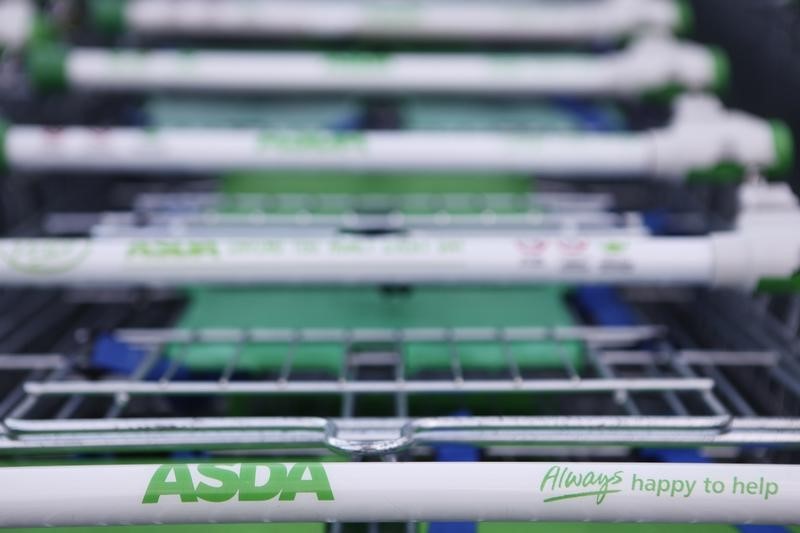By James Davey and Neil Maidment
LONDON (Reuters) - Asda, the British arm of U.S. retailer Wal-Mart (N:WMT), reported its worst quarterly sales fall in more than five years on Tuesday, but insisted its long-term strategy was the right one.
Asda, ranked second by annual revenue behind Tesco (L:TSCO) among British supermarkets, has been hit by an industry price war and record food deflation. It warned this year was shaping up to be even tougher than 2014, with the grocery market turbulent and shopping habits continuing to change.
"Despite signs of a real and sustainable economic recovery, 2015 is setting itself up to be the most challenging year yet for traditional supermarkets," CEO Andy Clarke told reporters.
"Customers are not yet cash-confident, preferring to save rather than spend."
Clarke said Asda's strategy to maintain a price gap with its three big mainstream competitors, Tesco, Sainsbury 's (L:SBRY) and Morrisons (L:MRW), while narrowing the gap to discounters Aldi [ALDIEI.UL] and Lidl [LIDUK.UL] was working.
He pointed to market-share gains in areas such as dairy and meat where it has cut prices significantly.
"Strategically we're absolutely on plan, continuing to invest in price is working," he said.
However, Asda's sales at stores open more than a year, not counting fuel, fell 3.9 percent from a year ago in the 15 weeks to April 19, its fiscal first quarter.
The decline came after a 2.6 percent fall in Asda's fourth quarter and was its third quarterly decline in a row.
DEFLATION
All the "big four" grocers have been lowering prices in a bid to turn the tide after losing customers to discounters. But Asda was the first, saying in November 2013 it would spend 1 billion pounds on cuts over five years.
Some 300 million pounds went on price cuts in 2014 with another 100 million pounds spent in the first quarter. In February, Asda separately said it would invest an additional 600 million pounds on stores this year.
Unlike its rivals Asda stopped issuing money-off vouchers over a year ago, calling them short-sighted "gimmicks".
"It would be not transparent of me to say that (minus) 3.9 percent is a good performance," said Clarke.
But he said it had to be seen in the context of grocery price deflation of about 2 percent and a wider market undergoing dramatic restructuring.
"There are short-term positions being taken by some retailers which aren't long term sustainable," he said, acknowledging their impact on Asda.
British consumers are shopping around for the best prices, buying little and often and increasingly opting for convenience stores or online shopping rather than large out-of-town sites.
Industry data earlier this month showed sales fell at all of the big four supermarkets in the last three months. Asda was the worst performer and analysts think it could be most vulnerable to better momentum at Tesco and Morrisons, both of which have appointed new bosses to lead turnarounds.
"Tesco is re-awakening, probably taking a little bit of share from just about everyone," said Shore Capital analyst Clive Black.
Separately on Tuesday, Wal-Mart missed first quarter U.S. sales forecasts.

($1 = 0.6451 pounds)